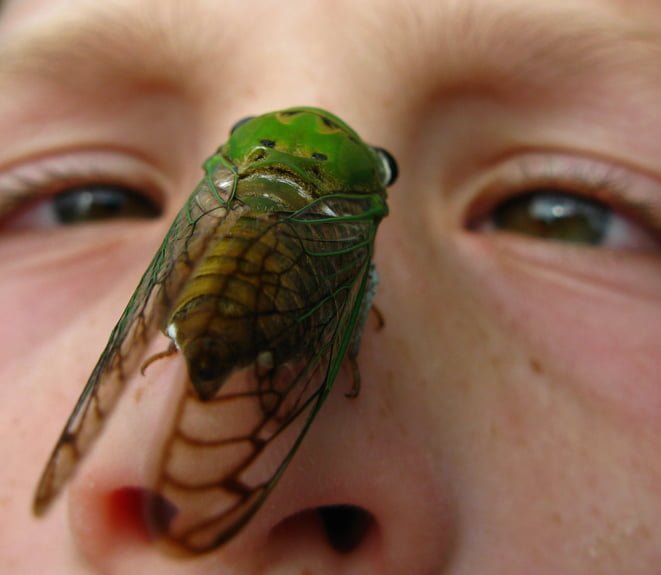They’re here….

You’ve probably already heard them and mistaken them for a military jet flyover.
The Brood V cicadas have risen from the ground, and are announcing to the world that they’re getting it on.
According to an Ohio State entymologist, the loud noise acts as a defense mechanism to scare away predators during mating, though this news editor believes the sound can be more accurately described as a general nuisance.
For three weeks earplugs will go out of stock all around Columbus while female cicadas lay their eggs, and we won’t hear from their kids until 2033.
[su_button url=”http://nbc4i.com/2016/05/18/cicadas-beginning-to-emerge-in-central-ohio/” target=”blank” background=”#e50403″ size=”6″]Read More[/su_button]
5/9/16: Cicadas are late to rise this year… and no one minds
They’re huge, they’re prolific, and their chirping has been compared to the sound of an airplane engine.
So I think it’s safe to say that no one minds that they’re late.
This year’s brood of 17-year cicadas was due to emerge this week, but researchers say the cool soil temperatures will keep them in the ground a little while longer.
Now it’s predicted that they’ll start coming out around May 23, with the telltale signs of their exoskeletons littering lawns across Columbus.
[su_button url=”http://nbc4i.com/2016/05/09/emergence-of-cicadas-delayed-due-to-cool-soil-temperature/” target=”blank” background=”#e50403″ size=”6″]Read More[/su_button]
4/4/16: It’s been 17 years… Cicadas rise from slumber to terrorize Ohio
With the weather taking an upswing there’s bound to be a hum in the air this spring–caused by the beating wings and mating calls of millions of cicadas.
The sound of cicada calls has been compared to the din of a New York subway or an airplane engine, which you can hear in this video of cicadas in Tennessee.
This year’s batch of cicadas, known as Brood V, have been developing underground since 1999, and are expected to burrow up to the surface world some time in May.
Biologists say cicadas are beneficial for the environment because they aerate the soil and serve as tasty snacks for birds and other predators, but don’t feel too bad if a few end up smashed on your windshield. After all, the total size of Brood V is estimated to be in the billions, with bugs spread across the midwest and as far east as New York.
Though you can expect to see the giant insects here and there in Franklin County, eastern Ohio towns like Athens and Nelsonville are expected to be hit the hardest.
All this in the name of nature’s prime directive: reproduction.
According to the Columbus Dispatch, cicadas live for only about 6 weeks, and can copulate for as long as 50 hours at a time.
So when you hear the cicadas singing this spring, at least you can take solace in the fact that love is in the air–in a sense.
[su_button url=”http://www.dispatch.com/content/stories/local/2016/04/03/big-cicada-brood-ready-to-emerge-in-eastern-ohio.html” target=”blank” background=”#e50403″ color=”#ffffff” size=”6″ icon_color=”#ffffff” text_shadow=”0px 0px 0px #ffffff”]Read More[/su_button]
BROUGHT TO YOU BY


